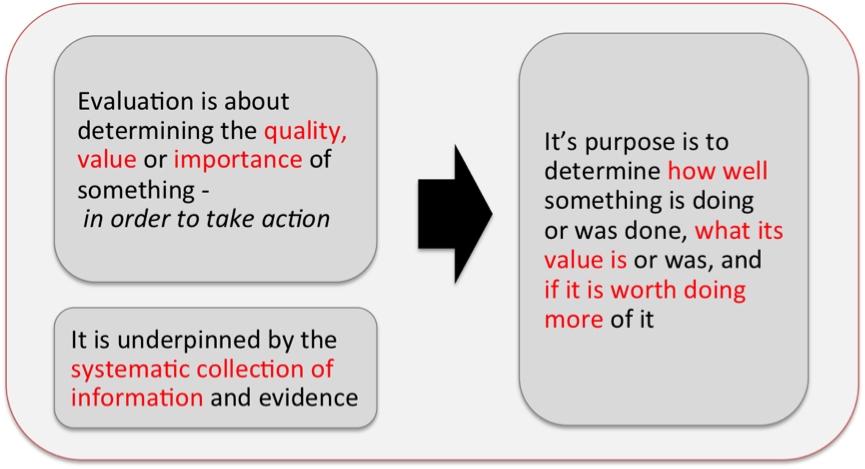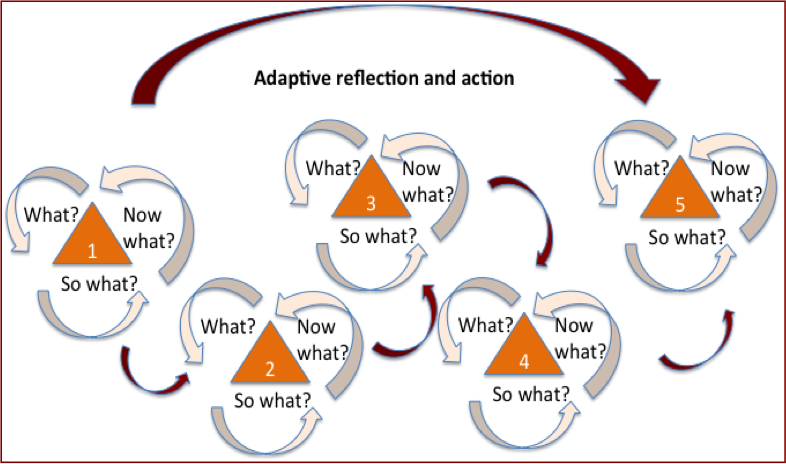I’m Kate McKegg, Director of The Knowledge Institute Ltd a member of the Kinnect Group with Nan Wehipeihana. We want to share what we have learned about explaining developmental evaluation (DE).
Evaluation isn’t something that our clients or our communities fully understand and it can create anxiety. So, when we suggest that a client or community undertakes a developmental evaluation this can be extra puzzling for folks.
Rad Resource:We usually begin by reinforcing some key messages about what evaluation is:
Hot Tip: In our experience, stressing the importance of systematic, well informed evaluative reasoning is a key step in convincing people that DE is evaluative, and not just some kind of continuous quality improvement process.
Hot Tip: We explain why we think DE is best suited to their situation, meaning:
- There is something innovative going on, something is in development and people are exploring, innovating, trying things out and creating something they hope will make a difference
- The situation is socially and/or technically complex, and rapidly changing. People are experimenting with new ideas, new ways of doing things, approaches, different relationships and roles – and this is likely to be happening for a while
- There is a high degree of uncertainty about what is likely to work, in terms of process, practice and outcomes. Which pathway the initiative might take is not yet clear, i.e., what the future holds is still unknown
- The situation is emergent, i.e., there are continually emerging questions, challenges, successes and issues for people to deal with in real time.
Hot Tip: Finally, we explain the key features of DE. We typically focus on the following 4 features:
- DE has a systems orientation i.e., that understanding a DE evaluation challenge systemically involves paying attention to relationships, different perspectives and boundaries, and that this approach is ideally suited to working with complexity and emergence
- DE involves cycles of learning to inform action using real time data, as part of an ongoing process of development – probing, venturing, sensing, learning, and re-learning
Rad Resource: Adaptive action and reflection graphic:
- DE typically has an emergent evaluation design – in order that it can be responsive and changing needs, issues, and challenges as they arise
- With DE, the evaluator typically becomes part of the team bringing together evaluative thinking with evidence in ways that support key stakeholders to understand the quality and value of something in real time.
Rad Resource: The Australasian Evaluation Society (AES) Best Evaluation Policy and Systems Award, 2013, was for a Developmental Evaluation we conducted of He Oranga Poutama, a M?ori sport and recreation initiative. You can read about it here.
This week, we’re diving into issues of Developmental Evaluation (DE) with contributions from DE practitioners and authors. Do you have questions, concerns, kudos, or content to extend this aea365 contribution? Please add them in the comments section for this post on the aea365 webpage so that we may enrich our community of practice. Would you like to submit an aea365 Tip? Please send a note of interest to aea365@eval.org. aea365 is sponsored by the American Evaluation Association and provides a Tip-a-Day by and for evaluators.


